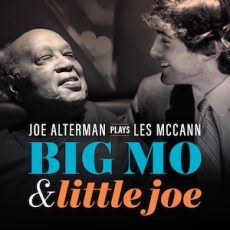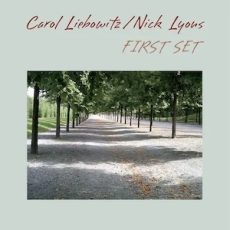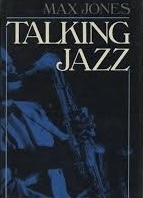
Daily Dose Of Jazz…
Joe Alterman was born November 16, 1988 in Atlanta, Georgia and graduated from New York University with both a Bachelor’s and Master’s in Jazz Piano Performance.
He has performed at iconic venues including the Kennedy Center, Lincoln Center, Birdland, and Blue Note, sharing stages with jazz greats like Houston Person, Les McCann, and Ramsey Lewis. He also had the privilege of opening for Dick Gregory at the Kennedy Center.
He leads his trio or performs solo with a deep groove, bluesy touch, and an exuberance that’s hard to resist, his playing is both deeply rooted and refreshingly modern. He has recorded eight critically acclaimed albums to his name, including the 2023 release Joe Alterman Plays Les McCann: Big Mo & Little Joe, Alterman continues to evolve as a recording artist while honoring jazz’s deep traditions.
His creativity extends to his cultural leadership and writing. As the Executive Director of Neranenah, an Atlanta-based Concert & Culture series, he celebrates Jewish contributions to music and the arts. His writing has also garnered acclaim, he has penned liner notes for three Wynton Marsalis and Jazz at Lincoln Center Orchestra albums. Alterman was the subject of Nat Hentoff’s final piece on music and in 2025, he was featured on President Jimmy Carter’s Grammy-winning album, Last Sundays In Plains: A Centennial Celebration.
Pianist, composer, writer, and cultural curator Joe Alterman continues to record and swing with style all over the world.
More Posts: bandleader,composer,history,instrumental,jazz,music,piano,writer

Daily Dose Of Jazz…
César Cardoso was born on November 10, 1982, in Leiria, Portugal. At only seven years old he dedicated his time to studying music, From 2004 to 2008 he studied at Hot Clube de Portugal’s Jazz School, where he had lessons with Jorge Reis and Pedro Moreira and started to distinguish himself as a jazz musician. 2008 had him enrolled at Escola Superior de Música de Lisboa, where he continued to work with Jorge Reis and Pedro Moreira. Completing a Jazz Bachelor Degree in saxophone performance, he became a member of the dixieland group Desbundixie with whom he recorded Kick’n Blow in 2007 and Up 2 Nine in 2009.
In 2010, César recorded his debut, Half Step, with his quintet at that time followed with a second album, Bottom Shelf, was released five years later in Hot Clube de Portugal, and features his original music this time written for His third album Interchange, was recorded with special guest, Miguel Zenón on alto saxophone.his quartet. His fourth album, Deice of Tenors, is a large ensemble recording.
He published the book Teoria do Jazz (Jazz Theory), with Chiado Editora, the first book ever written in Portuguese about the theoretical bases of Jazz, thought through to serve as a handbook for jazz students. His second book, a complement of the first, is titled Teoria do Jazz – Exercícios. Cardoso has composed and arranged for big bands, such as the Orquestra Jazz de Leiria and the Orquestra do Hot Clube de Portugal.
Saxophonist César Cardoso has won awards, became the first Portuguese musician to become an Artist Henri SELMER Paris, completed his PhD in Music and Musicology, and continues to perform, compose, arrange and teach at the Universidade de Évora in the Jazz degree program and is the pedagogical director of Escola de Jazz de Leiria.
More Posts: bandleader,history,instrumental,jazz,music,saxophone

Daily Dose Of Jazz…
César Cardoso was born on November 10, 1982, in Leiria, Portugal. At only seven years old he dedicated his time to studying music, From 2004 to 2008 he studied at Hot Clube de Portugal’s Jazz School, where he had lessons with Jorge Reis and Pedro Moreira and started to distinguish himself as a jazz musician. 2008 had him enrolled at Escola Superior de Música de Lisboa, where he continued to work with Jorge Reis and Pedro Moreira. Completing a Jazz Bachelor Degree in saxophone performance, he became a member of the dixieland group Desbundixie with whom he recorded Kick’n Blow in 2007 and Up 2 Nine in 2009.
In 2010, César recorded his debut, Half Step, with his quintet at that timefollowed with a second album, Bottom Shelf, was released five years later in Hot Clube de Portugal, and features his original music this time written for His third album Interchange, was recorded with special guest, Miguel Zenón on alto saxophone.his quartet. His fourth album, Deice of Tenors, is a large ensemble recording.
He published the book Teoria do Jazz (Jazz Theory), with Chiado Editora, the first book ever written in Portuguese about the theoretical bases of Jazz, thought through to serve as a handbook for jazz students. His second book, a complement of the first, is titled Teoria do Jazz – Exercícios. Cardoso has composed and arranged for big bands, such as the Orquestra Jazz de Leiria and the Orquestra do Hot Clube de Portugal.
Saxophonist César Cardoso has won awards, became the first Portuguese musician to become an Artist Henri Selmer Paris, completed his PhD in Music and Musicology, and continues to perform, compose, arrange and teach at the Universidade de Évora in the Jazz degree program and is the pedagogical director of Escola de Jazz de Leiria.
More Posts: bandleader,history,instrumental,jazz,music,saxophone

Daily Dose Of Jazz…
Nick Lyons was born in New York City on November 7, 1982. He graduated from Oberlin Conservatory of Music in Oberlin, Ohio, then lived and actively played in the San Francisco Bay Area. Returning to New York he settled in Brooklyn in 2005 and collaborated with pianist and mentor Connie Crothers until her passing in 2016. This had a profound effect on his approach to music and improvisation. His other significant teachers and mentors have included Donald Byrd, Donald Walden, and Gary Bartz.
In 2022 he toured as a solo performer in Denmark and Germany, participated in 2 residencies in France and 1 in the US with the Paris-based group Mobke, appeared on 2 CD releases, “Triple Exposure” under his own name with Gene Perla and John McCutcheon and “Another Spring” with vocalist Cheryl Richards, performed often with bassist Adam Lane’s quartet, performed with pianist Harvey Diamond and bassist Cameron Brown.
In 2020 he joined the improvising ensemble Concerts from Cars which traveled the streets of NYC as a car caravan and performed from the street. They have performed at clubs all over New York. Lyons has been a sideman with William Parker, Sam Ospovat, Adam Caine and Federico Ughi as well as a duet with pianist Carol Liebowitz.
Among the many he has performed with are pianists Connie Crothers and Kazzrie Jaxen; trio with clarinetist Bill Payne and flutist Robert Dick, tenor saxophonist Jimmy Halperin, bassists Michael Bisio, Ken Filiano, Hill Greene, and Ratzo Harris, and drummers Roger Mancuso, Michael Wimberly, Billy Hart, and Billy Mintz.
Nick Lyons, who is an improvising alto saxophonist and composer has earned a reputation among peers for his musical imagination and original approach to playing both standard tunes and pure improvisation.
More Posts: bandleader,composer,history,instrumental,jazz,music,saxophone

On The Bookshelf
Talking Jazz | Max Jones
Max Jones, known affectionately as “the Boswell of bebop” by Time Out, was famed in England for nearly four decades of insightful, ardent writing on jazz. With this luminous collection of interviews, his work will at last be widely accessible to American readers. Here are the voices of jazz — Coleman Hawkins, Johnny Hodges, Billie Holiday, and Mary Lou Williams, to name but a few — in conversation with Jones, who could turn a casual chat into an indelible portrait and who gives American readers a view of these musicians they have never had before.
In this book, the author Max Jones tells the story of jazz from its roots in the African-American community to its development as an international art form. Jones covers a variety of topics, including the development of improvisation, the influence of Louis Armstrong and Duke Ellington, and the rise of bebop. He also provides historical context and examines the different styles of jazz, from ragtime to free jazz. This book is an excellent resource for students interested in learning more about jazz and its history.; B & W Photographs; 8vo; 293 pages
Talking Jazz: 1987 | Max Jones
Anchor Brendon Limited



